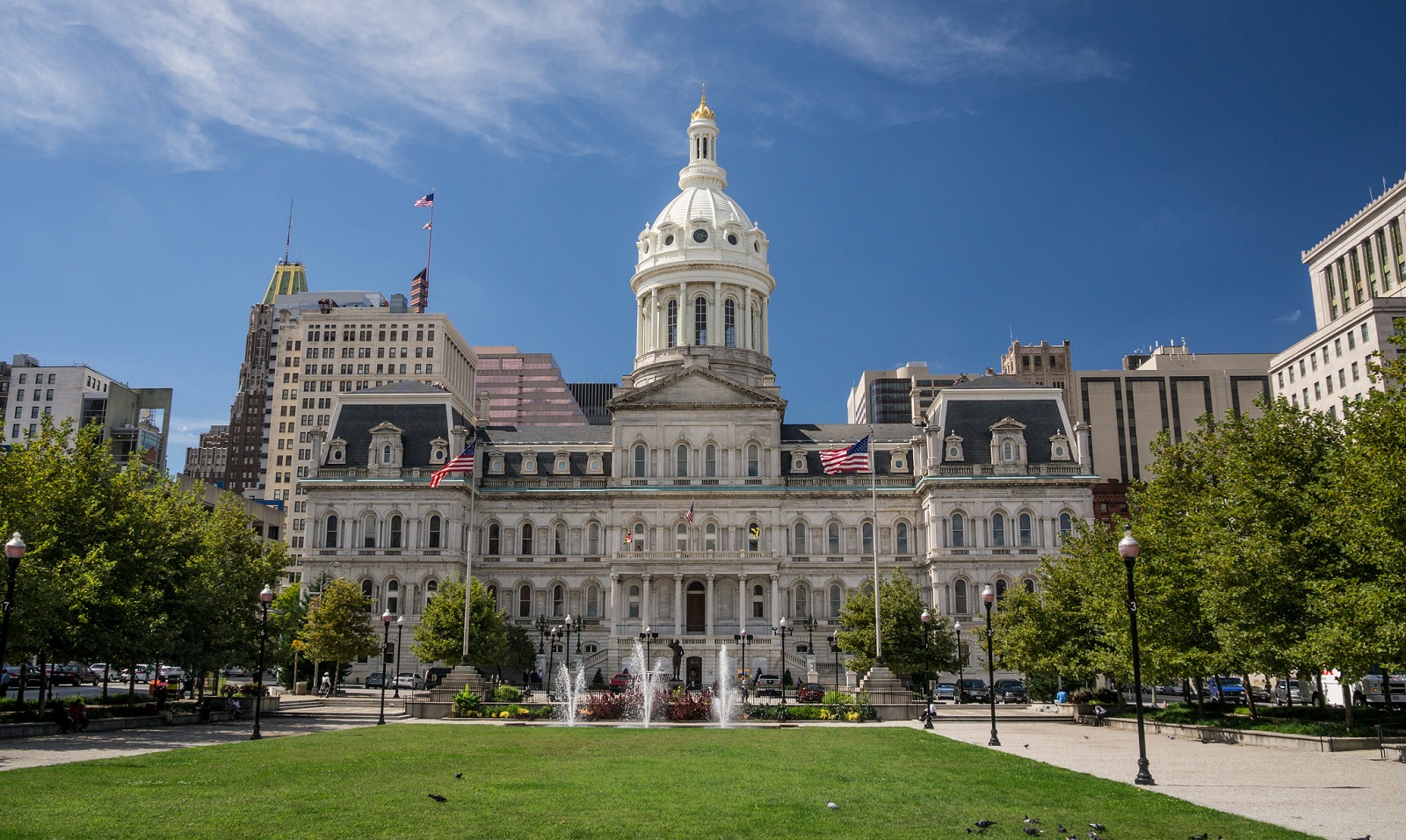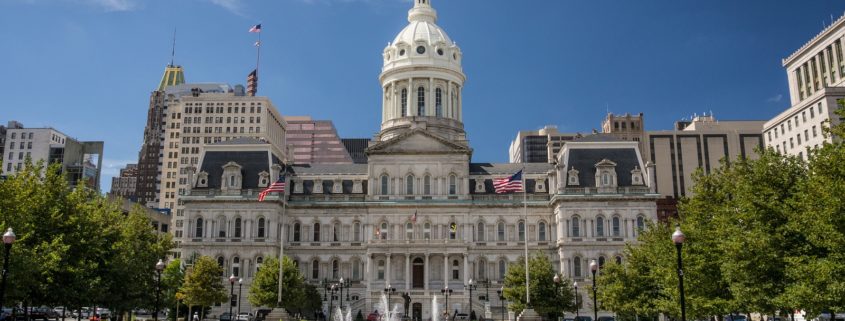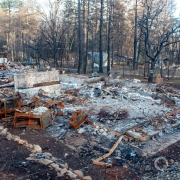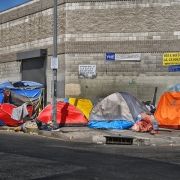Water Debt Not on the Menu in Baltimore’s Tax Sale Season
City and state officials take steps to keep residents from losing homes because of overdue water bills.

The sale of tax liens linked to past-due water bills is controversial in Baltimore. In December, the mayor announced a moratorium on the practice this year. Photo courtesy of Flickr/Creative Commons user k1rsch
By Brett Walton, Circle of Blue
For sale: the tax debt on a one-story Craftsman house on 4th Street, in Baltimore’s Brooklyn neighborhood.
Opening bid: $399.42, the amount of the debt — called a lien — plus fees.
The 4th Street house (assessed value: $100,300) is one of 24,569 properties whose past-due city fees and property tax debt will be offered to investors in Baltimore’s annual tax lien sale, scheduled for May 14 this year.
Buyers of the liens will pay the city for the right to collect the debt and up to 12 percent interest from the property owner. Because the home price is based on the debt, some liens, like the one on the 4th Street house, can be acquired for pennies on the real dollar value of the property and are appealing to investors looking for a potentially huge windfall, says John Rao, an attorney with the National Consumer Law Center.
If the debts still go unpaid after the sale during the one to two year “redemption” period, lien holders can foreclose on the property and eventually take ownership. Foreclosures from sold liens are rare, but they happen.
The lien sale is a rite of spring in many U.S. cities, which see the practice as a tool for ensuring residents pay taxes. But there are changes afoot. One item that bidders could purchase in Baltimore’s past auctions will not be available on this year’s shopping list: homes with outstanding water and sewer debt.
“It’s a vicious process that the state of Maryland should not be party to,” Del. Mary Washington, a state representative, told Circle of Blue, referring to the selling of water debt.
In December, Mayor Catherine Pugh ordered a moratorium on the sale of liens for residential properties solely for water debt.
Pugh said she was suspending the practice so that the city could work with homeowners to reduce large past-due water balances.
The moratorium has limits, though. It applies only to owner-occupied homes. Renters do not have protection against deadbeat landlords. Churches and commercial property are excluded. And it is not permanent. The narrow focus led some state lawmakers to feel that the moratorium was not strong enough to curb what they view as a punitive practice. Washington represents District 43, a wedge of north Baltimore, and in the most recent session of the Maryland Legislature, she introduced a bill that would have revoked the Baltimore City Council’s authority to use liens to collect debt from unpaid water charges.
The bill had no opposition in the House, passing by a 138 to 0 margin.
In the Senate, however, the bill did not get out of committee, a move that dismayed the social justice advocates of Washington’s proposal. Sen. Barbara Robinson, the sponsor in that chamber, told Circle of Blue that to get a water lien bill passed she had to redraft it and diminish its scope.
In the end, the Senate bill looked a lot like the mayor’s moratorium: it covers residential properties that have only water and sewer debt. Liens on water and sewer debt will still be enforced if there are other unpaid property taxes. The protections, now law, extend through December 2019.
Burial by Accumulating Fees
City officials argue that the lien process is an effective means of pressuring late-payers to settle their tax bills so that the city has the revenue it needs to operate. In 2017, Baltimore says it sent about 7,000 notices to utility customers with qualifying past-due balances that their debt would be sold at tax sale. After receiving this warning, three-quarters of the accounts settled their debt before the sale, the city says. A financial assessment prepared by the Maryland Department of Legislative Services suggests that Baltimore’s revenue losses because of the bill could be “significant.”
But for people on the financial edge, the fees that accompany these nudges can put them farther behind and possibly put their most valuable asset — their homes — at risk.
For lien sales, New York City adds a five percent administrative fee, plus fees for advertising the sale. Interest on the lien adds more costs. Baltimore adds advertising fees and 12 percent annual interest. If the lien holder proceeds to foreclosure, then additional fees — legal expenses, repair costs if the home is not up to code, and title search fees — can add thousands of dollars to the debt as the owner tries to hold on to the home.
“Every escalation has an impact on the homeowner or renter,” Alexandra Campbell-Ferrari told Circle of Blue, in reference to the accumulation of fees. Campbell-Ferrari is the co-founder of the Center for Water Security and Cooperation, a Washington, D.C.-based think tank that is investigating how municipal laws and policies in Maryland that are used to shut off water and sell liens affect the affordability of water and sewer service.
“It’s amazing how little attention the issue gets,” Campbell-Ferrari said. Like Rao, the consumer law attorney who wrote a report in 2012 on lien sales, she said there is very little easily accessible data on sales related to water debt, which makes it difficult to tell, in broad terms, how common or disruptive the practices are. Both agreed that the accumulation of fees can flip a relatively small debt into a destabilizing financial burden.
The problems of using liens for water and sewer debt has become more urgent in recent years due to the rising cost of those municipal services, Rao argues. According to Circle of Blue research, Baltimore water prices have increased by 85 percent since 2010. Sewer charges are higher than water.
Other cities have carved out lien exemptions for homeowners that exclude water debt. New York City, for one, has sold tax liens since 1996. Apartments, duplexes, condos, and commercial buildings can accrue liens because of water and sewer debt. (The thresholds, generally, are: debts that are a year old and more than $1,000, though the dollar figure varies depending on the property category.) The Department of Finance, however, exempts single-family residential properties from the process if their only debt is water and sewer charges. Utilities still have other levers for extracting payment. The Water Board can still shut off service to these homes for non-payment. New York City’s lien sale takes place this year after May 17.
In Rhode Island, public outrage from the foreclosure, in 2005, of an 81-year-old woman’s house prompted state lawmakers to overhaul the tax lien system. The foreclosure stemmed from an unpaid $496 sewer bill. The changes require more rigorous notification and engagement from public authorities. The law also gives the state housing agency the right to buy a property and work out a payment plan with the homeowner.
Rao, who used to practice law in Rhode Island, praised the changes in the lien process for bringing utilities closer to their customers.
“It’s easy for municipalities to figure that they have a process that ensures they get paid, so they don’t have to worry about engaging with customers who fall behind,” Rao told Circle of Blue.
Home foreclosure is the worst-case scenario that drives many advocacy efforts against selling liens. But foreclosures are rare, and foreclosures for water debt rarer still. From 2008 to 2016, New York City sold about 41,400 liens. In that period only 158 residential properties were foreclosed on, according to a city task force. Baltimore has not foreclosed on any property in the last two years for only water debt, the city says.
The lien debate in Baltimore is not over. Washington and Robinson intend to revive the issue in the next legislative session. “I will be looking to extend the protections next year,” Washington said.
Brett writes about agriculture, energy, infrastructure, and the politics and economics of water in the United States. He also writes the Federal Water Tap, Circle of Blue’s weekly digest of U.S. government water news. He is the winner of two Society of Environmental Journalists reporting awards, one of the top honors in American environmental journalism: first place for explanatory reporting for a series on septic system pollution in the United States(2016) and third place for beat reporting in a small market (2014). He received the Sierra Club’s Distinguished Service Award in 2018. Brett lives in Seattle, where he hikes the mountains and bakes pies. Contact Brett Walton










Leave a Reply
Want to join the discussion?Feel free to contribute!